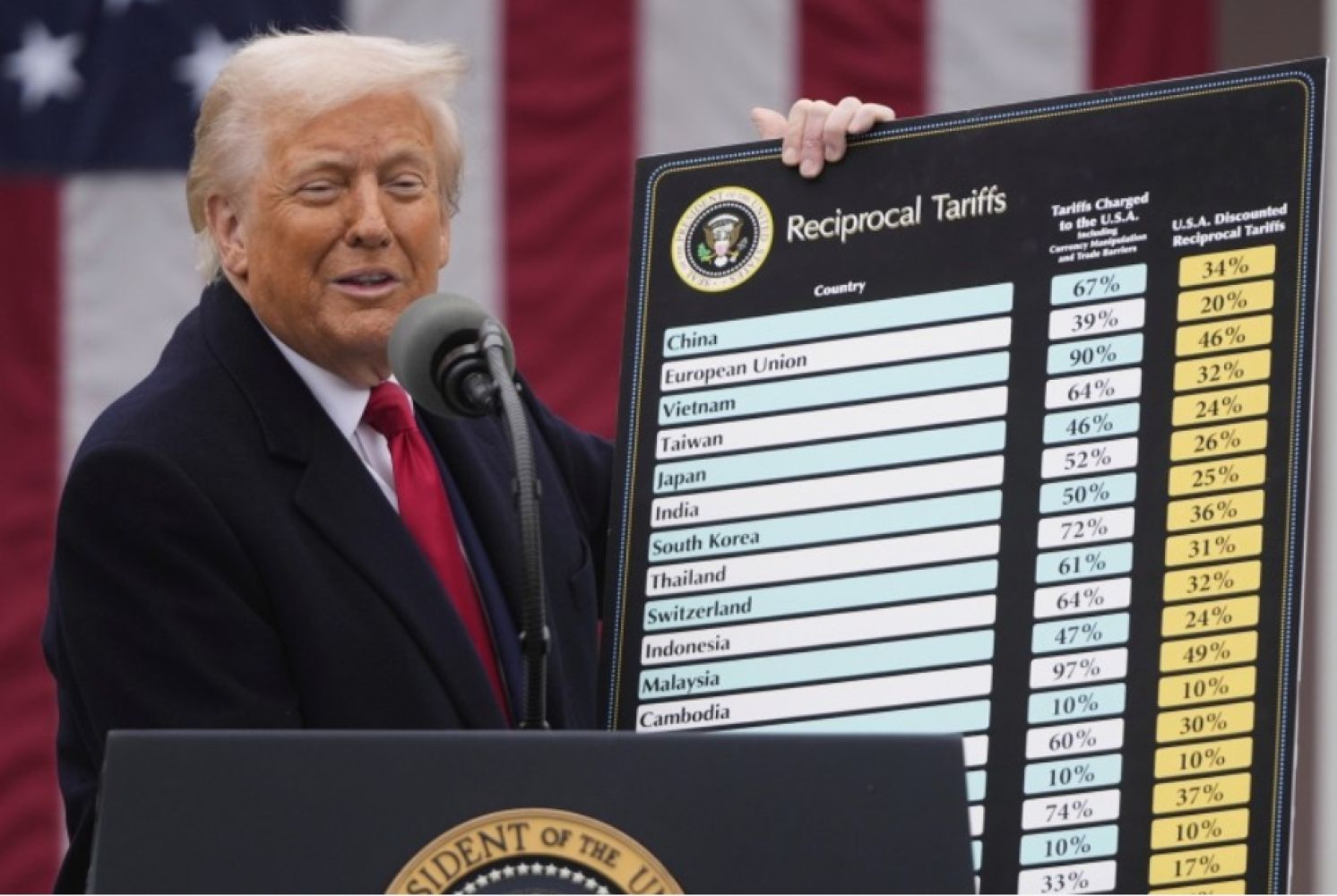
Lai Administration's Single-Minded U.S. Reliance Resulted in Betrayal
United Daily News Editorial, April 4, 2025
Recently, President Donald Trump of the United States announced the imposition of "reciprocal tariffs" on various countries, with Taiwan listed among the "worst offenders," facing a 32 percent tariff. Compared to Japan's 24 percent, South Korea's 26 percent, and Singapore's 10 percent, Taiwan's burden is significantly heavier, second only to China's 34 percent. This drastic increase in costs for Taiwanese exports to the United States severely undermines the competitiveness of Taiwan's industries.
Mr. Trump lauded the tariff war as “America’s Liberation Day,” but it is a reckless gamble with the U.S. economy, rising unemployment, inflation, and the disruption of the global trade order. Meanwhile, Taiwan’s government appears unprepared. President Lai Ching-te’s administration has been preoccupied with political infighting and mass recalls, showing little concern for economic risks. Premier Cho Jung-tai claimed the government was “well-prepared,” but was a 32 percent tariff truly anticipated? Even more shocking, Minister of Economic Affairs Kuo Tzu-hui stated that countermeasures would only be announced after the holiday break.
President Lai previously held a press conference with chief executive officer C.C. Wei of the Taiwan Semiconductor Manufacturing Company (TSMC), stressing that its investment in the United States would not turn the firm into "American Semiconductor Manufacturing Company." However, while TSMC's move may protect its own interests, it cannot shield the broader Taiwanese industry from heavy American tariffs. Despite massive military purchases from the United States, Taiwan still faces harsh penalties. Industries are left to fend for themselves, as the government offers no concrete solutions.
Taiwan's emergence as the seventh-largest trading partner and sixth-largest trade deficit country of the United States is a direct result of Democratic Progressive Party (DPP) policies. Under former President Tsai Ing-wen, initiatives like the "New Southbound Policy" and "Salmon Homecoming" were intended to reduce dependence on the mainland Chinese market. However, the administration's harsh anti-China stance worsened cross-strait relations, forcing Taiwanese businesses to relocate or withdraw investments. Although Taiwan's exports to the mainland decreased from 42.3 percent in 2021 to 31.7 percent in 2023, much of this dependence simply shifted to the United States.
Earlier this year, the Ministry of Finance celebrated that Taiwan's exports to the United States had surpassed those to mainland China for the first time in 24 years, viewing it as a diplomatic and economic triumph. Yet this "success" quickly turned into a disaster. Taiwan found itself listed among the "Dirty Fifteen" nations and subjected to punitive 32 percent tariffs. The shock and anger among industries and citizens is palpable, yet the Lai administration remains directionless.
The DPP's strategy of betting everything on the United States has proven naïve and narrow-minded. Believing that "alliances of shared values" would guarantee protection, they ignored the harsh realities of international politics. Consequently, Taiwan now pays a heavy price for this miscalculation, having put all its eggs in one basket and suffering the inevitable blowback.
From: https://udn.com/news/story/7338/8652335
〈Back to Taiwan Weekly Newsletter〉